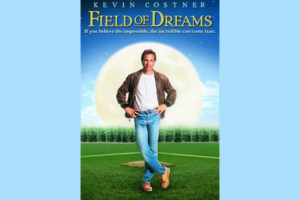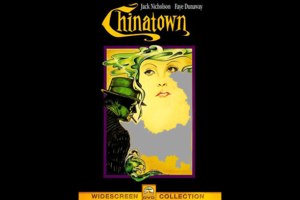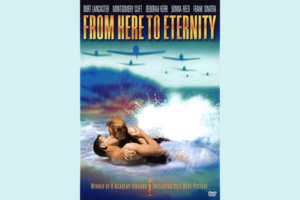
Are you sure we’re not in a looney bin? Sometimes I think we’re in a goddamn looney bin!


Today’s movie is Go Tell the Spartans (1978).
Go, tell the Spartans, stranger passing by
That here, obedient to their laws, we lie.
Simonides of Ceos[1]
Of course, the above quote is about the Spartan Greek Battle of Thermopylae (Hot Gate) in 440 B.C. where 300 Spartans held off a vastly superior Persian army at the cost of all of their lives. Naturally, I had never heard of the Battle of Thermopylae the first time I watched this movie and was not prepared for the ending.
This movie is rated 6.8[2] on iMDB.com and has a poor audience score of 55[3] percent on Rottentomatoes.com. This movie is better than that. It actually pretty funny in places. The great Roger Ebert stated[4]:
“Go Tell the Spartans” considers the war in Vietnam in terms of the microcosm of Muc Wa in 1964, and so contains a lot of statements that are meant to be prophetic in hindsight. It also considers the war in terms of countless earlier movies about earlier wars, so we get tried-and-true characters like the gung-ho second lieutenant, the crazy kid, the battle-scarred sergeant, the wise-cracking radio operator and, or course, the commander who has seen it all before.
But the cliches do their duty once again, generally speaking; the movie’s tightly directed by Ted Post, whose most successful film was the Clint Eastwood thriller “Magnum Force.” Post is apparently directing on a modest budget, and yet he creates a realistic war scape and believable characters. The most believable is Lancaster, who brings a nice subtlety to his character.
Currently, the movie is[5]:
A cult fave — and deservedly so — Go Tell the Spartans was hard-headed and brutally realistic about our dead-end presence in Vietnam; released the same year as Coming Home and The Deer Hunter, the film won critical admiration, but audiences preferred individualised [sic] sagas, sentiment, and romantic melodrama. Rather than tackle the effects of the war on physically and emotionally wounded vets, this brave film exposed the fundamental, tactical lunacy of the war as perceived by an American officer (Burt Lancaster) who knows better, but must follow through on stupid, self-destructive orders from above. This is one of Lancaster’s best performances: embittered, a cog in the military juggernaut, this good man foresees the killing waste to come.
Actors – Go Tell the Spartans (1978)
Returning
One of the greatest actors ever, Burt Lancaster played the battle-weary Maj. Asa Barker. Lancaster was covered in Birdman of Alcatraz (1962).
Dabney Coleman had a teeny-tiny uncredited part as a helicopter pilot. Coleman was covered in WarGames (1983).
New
Craig Wasson plays Army volunteer Cpl. Stephen Courcey. Wasson was born in 1954 in Oregon. In 1972, he began acting in New York but moved to LA in 1975. He began working in television and eventually made it into movies. His first film seems to be as a hippy boy in the thriller Rollercoaster (1977). His big break came in 1978. He was in two Vietnam War films; The Boys in Company C (1978) where you can see R. Lee Ermey doing an early version of the Marine Drill Instructor he perfected for Full Metal Jacket (1987) and the second film being today’s, Go Tell the Spartans (1978). The next year he was in The Outsider (1979) which I remember as a very good film about an American joining the IRA. It has a surprise ending. He had more respectable movies with Four Friends (1981) and Body Double (1984). Seeming like he was on top, the roles got worse until he was in the likes of A Nightmare on Elm Street 3: Dream Warriors (1987) and Sasquatch Mountain (2006).
Jonathan Goldsmith played Sgt. Oleonowski. Who is Goldsmith? You know already. Goldsmith was born in 1938 in New York City. I won’t say much about this guy as he is really a major television action. He did show up in a few movies such as Hang ‘Em High (1968), Ice Station Zebra (1968), getting shot while uncredited in The Shootist (1976), and Go Tell the Spartans (1978). Why do you know him? He was the original “The Most Interesting Man in the World” from the Mexican beer commercials.
Marc Singer played Capt. Alfred Olivetti. Singer was born in Canada in 1948. Wait, the Beastmaster is Canadian? He moved to New York and then Texas. He started acting during his junior year of high school. After college Marc started working in television. Go Tell the Spartans (1978) was his first movie. He played a blind musician in If You Could See What I Hear (1982). That same year the movie that he is most associated with The Beastmaster (1982) came out as well. He then became a part of the “V” alien television series which continued until the mid-1980s, not counting one in 2011. Beastmaster 2: Through the Portal of Time (1991) reprised his earlier role. He was active on television, and his last role was in 2016.
James Hong played The Old Man. Hong has 424 movie and television credits that span from televisions “Kung Fu” 1972-1975 to Wayne’s World 2 (1993) to Kung Fu Panda (2008). This prolific actor was born in Minnesota in 1929. Hong studied engineering at the University of Minnesota. Since he was interested in acting, he moved to California and graduated from USC. He worked for the county but would take time off to be in films and television. After a time, he gave up the county job.
This is going to take a bit, so let me catch my breath and take a drink. Hong’s first movie was Dragonfly Squadron (1954). He had a part in Godzilla, King of the Monsters! (1956), Flower Drum Song (1961), and Destination Inner Space (1966). Hong was in the great Steve McQueen anti-war movie The Sand Pebbles (1966) and sci-fi classic Colossus: The Forbin Project (1970). Hong was another Asian-American actor that spent some time on television’s “Kung Fu” 1972-1975. He was in Chinatown (1974) and it’ sequel The Two Jakes (1990). He acted in the comedies The In-Laws (1979), Airplane! (1980), and True Confessions (1981). He was in the super sci-fi Blade Runner (1982) and kicked it up with Chuck Norris in Missing in Action (1984). He was great as an evil wizard in Big Trouble in Little China (1986) and joined with Eddie Murphey for The Golden Child (1986). He was awesome as Cassandra’s father in Wayne’s World 2 (1993) even doing an aerial Kung Fu battle with Wayne. He was on television’s “Kung Fu: The Legend Continues” in 1994 and was in Operation Dumbo Drop (1995) which is a lot better than it would seem by the title. He showed his serious acting chops in Red Corner (1997). However, he is best in comedies, whether they be traditional like Balls of Fury (2007) or animated like Mulan (1998), Kung Fu Panda (2008), Kung Fu Panda 2 (2011), Kung Fu Panda 3 (2016), and Sherlock Gnomes (2018). Of course, he played the goose and father of Po. There is no secret sauce.
Evan C. Kim played the Vietnamese liaison, Cowboy. Kim was born in American, but for the life of me, I can’t find out where. It was, however, on February 17, 1953. Like many Asian-American actors, Kim started on the television series “Kung Fu” in 1975. He had a small part in Baby Blue Marine (1976) with Richard Gere and Jan-Michael Vincent. He had another small uncredited role in MacArthur (1977). He made a major splash with his next four movies. These movies are the cult comedy The Kentucky Fried Movie (1977), today’s movie Go Tell the Spartans (1978), Caveman (1981), and the wonderfully campy Megaforce (1982). He was associated with the mini-series “V” in 1983. He had an important role in The Dead Pool (1988). His last film was Loving Lulu (1992).
Hilly Hicks played Signalman Toffee. Hicks was born in LA in 1950. He is known for a bit of television work and Halls of Anger (1970), the terrible They Call Me Mister Tibbs! (1970), Gray Lady Down (1978), Go Tell the Spartans (1978) and Raise the Titanic (1980). He is now a very successful Methodist minister.
Story – Big Trouble in Little China
The movie begins in 1964, with US Army advisor Major Asa Barker (Burt Lancaster) leading a South Vietnamese patrol back to base. Barker soon sees his counterpart, an Army of the Republic of Vietnam Cpl. Nguyen “Cowboy” (Evan Kim) torturing a prisoner. Barker stops Cowboy from killing the man. Back at his command hut, Barker is assisted by the company radio operator Signalman Toffee (Hilly Hicks). Competent Capt. Alfred Olivetti (Marc Singer) is working on maps. Barker says he wants to kill Cowboy but Olivetti says Cowboy speaks too many languages to lose.
The new map is of a place called Muc Wa that the higher-ups want information on. Although there is nothing at Muc Fuck as Barker calls it is near the Da Nang to Phnom Penh highway. It is near the site of a French massacre from their Indo-China War. Barker decides to send in a fake report.
New troops are brought in to meet Barker. These men include rookie or shave tail Lt. Raymond Hamilton (Joe Unger), 1st Sgt. Oleonowski (Jonathan Goldsmith), medic Cpl. Abraham Lincoln (Dennis Howard), and draftee who volunteered for Vietnam, Cpl. Stephen Courcey (Craig Wasson). Barker knows Oleonowski from the Korean Conflict. Oleo is not the man he was before. As for shavetail, the Army has always used mules. A new mule with no experience has his tail shaved. When it is trained to carry gear, it has a single bell shape shaved into the hair on its’ tail. When it can be ridden, it gets two bells on its tail.
That night, Hamilton and Courcey are sent on mosquito patrol. A type of hazing. Barker and Olivetti watch to make sure flares are fired over a firefight in the jungle. Inside, the hutch, Lincoln is getting high on opium but Oleo goes for the booze. They clipped this scene for Platoon (1986).
Some days later, Barker’s commander General Harnitz (Dolph Sweet) flies down to as about Muc Wa. Harnitz says Barker never reconnoitered Muc Wa because it has been abandoned since 1953. The general believes holding that town is the key to holding Da Nang. Even though Barker doesn’t have enough men, he is ordered to occupy the town. Barker tells Olivetti that he used to be the general’s superior officer before ordering Olivetti to arm about 30 rice paddy farmers with shotguns and a few machine guns to support the occupation. He puts Hamilton in charge with Cowboy, 1st Sgt. Oloe, Cpl. Ackley (John Megna), Cpl. Lincoln, and Cpl. Courcey. Barker asks Oleo to help out and gives him a squad of mercenaries. Although there has been no VC activity in that area, Oleo reminds him that every time GIs show up, Charlie comes too. One of the paddy farmers is “Old Man” (James Hong). The force leaves for Muc Wa by truck.
On the road to Muc Wa, there is a barricade in the road. Odd, no one knew they were coming. Courcey is sent to check the roadblock for explosives. He finds a trip wire and Cowboy sends the mercenaries to find Charlie. They bring in one man wearing all black. After Cowboy can’t get any information, he kills the VC. The Americans are horrified.
The road turns into a jungle, and the trucks leave as the men head in on foot. Courcey is on rear guard with Old Man and a few other militias.
Lt. Finley Wattsberg (David Clennon) arrives at Barker’s HQ. He is a Psychological Operation known commonly as a Psy-ops officer. He has a system of color-coded blocks he believes will tell where the VC will attack next based on recent activity feed into a computer in Saigon.
The foot patrol makes it to Muc Wa which looks like a firebase that has been abandoned many years before. The ARVNs clear the village and helicopters drop them supplies. In the middle of the base is a cemetery halfway underwater. Olon takes over and gets the triangle shaped defenses in order. The Lt. has the trots.
Courcey goes to the cemetery which is the graves of the 302 French soldiers that died defending Muc Wa. The sign over the entrance is in French and says “Étrangers, dites aux Spartiates que nous demeurons ici par obéissance à leurs lois” which is basically the same quote about the Spartans.
Later Courcey and Cowboy lead a patrol outside of the base. A group of old men, woman, and children are fishing and washing in a stream. Cowboy says they are Commies and wants to kill them. Courcey gives them chocolate and makes friends. This quote from historian Stephen J. Ambrose is appropriate.
In the spring of 1945, around the world, the sight of a twelve-man squad of teenage boys, armed and in uniform, brought terror to people’s hearts. Whether it was a Red Army squad, … or a German squad … or a Japanese squad … that squad meant rape, pillage, looting, wanton destruction, senseless killing. But there was an exception: a squad of GIs, a sight that brought the biggest smiles you ever saw to people’s lips, and joy to their hearts. Stephen J. Ambrose[6]
This may not be totally true about Americans, but it is how we used to try and act. It might do good to try again.
Courcey brings them back to the base. He befriends a teenage girl called Butterfly (Denice Kumagai). In the cemetery, Courcey finds a note that says Yankee go home. He then sees a one-eyed VC. The whole base goes on alert. That night the VC mortars the base. Lincoln is high as a kite and hit during the attack. Courcey is out on patrol and kills the mortar crew with the help of Old Man and some militia. For the first time, he sees that VC can be women and children.
Butterfly constantly watches Courcey. The one-eyed VC watches from outside of the wire.
Olivetti tells his plan for advancing through the ranks. Barker gives him a warning saying after three wars and a bunch of medals why does he think he is still a major. Barker says the blocking signals are booze and pudendum. He said he can handle the booze, but the pudendum got him. He apparently had an affair with a general’s wife and had never been promoted since. Psy-ops moves Muc Wa to yellow.
That same night, Muc Wa is attacked. Courcey has to cover a river crossing so Olon can get across. One of the militia is hit on the other side of the river. Hamilton insists on going after the man as Courcey tries to stop him. Hamilton is shot down in the river.
General Harnitz comes back and says that he was right and Muc Wa was a key target. Barker tells him that he has to get reinforcements for ARVN command Colonel Minh (Clyde Kusatsu). He says the ARVN want to trade and will not help for free.
Courcey goes to Olon and asks for help in burying Hamilton. Olon throws him out and then kills himself with a pistol.
The news makes it back to Barker about the two leaders being killed. He sends Olivetti to be in command and say he can bugout at any time. Barker goes to Saigon to meet with Colonel Minh. Minh refuses to give the 300 requested troops saying he has heard that they may have to put down a coup in Saigon. Barker agrees to send him 1,500 rounds of artillery shells if he gets the 300 troops.
Olivetti takes over Muc Wa, and they are hit by a large force of VCs. Courcey and Old Man are on patrol and call in mortar fire as the VC cross the river. Old Man is hit, but Courcey brings him in. General Harnitz has grounded all American support plans so they can standby in case of the coup.
Barker takes the radio and calls General Harnitz. When Harnitz gets the message, he orders the air support for Muc Wa. The message says Barker will shoot the general’s balls off Muc Wa doesn’t get the air support.
Old Man is treated by Lincoln. The gunships arrive at Muc Wa with flares and support fire. They drive the attacking VC back with air and ground fire. The north side of the base gets hit, and the guys inside run to that side and barely stop the attack.
The next day Barker and a convoy head to Muc Wa. Psy-ops arrives in a helicopter and says the 507th VC battalion, consisting of 1,000 fighters is attacking. The general has ordered that no more forces be committed to the defense of Muc Wa and that everyone should be taken out by helicopter. Cowboy, the mercenaries, and the militia are ordered to walk the civilians out while the Americans and the wounded are to leave by helicopter. A leaking hydraulic line forces them to leave the walking wounded behind. This includes Old Man. Courcey refuses a direct order to get on the ship. The helicopter leaves, but Barker stays.
Barker makes the plan for their exit that night. It is dependent on Minh’s artillery. They rig everything to blow up. Courcey says he is there because he kicked an officer for kicking a dog. Barker says Courcey is a tourist and he wishes that he could have shown him a better war. The civilians try to steal weapons and run away, but Cowboy kills them. Butterfly is not among the dead.
Muc Wa begins to receive mortar fire. Barker requests the artillery fire. The group heads out with Barker bringing up the rear. The VC ambush the column and Butterfly is with them having given the escape plan to them. Courcey is hit. The group takes up a defensive position in a ravine. Barker dies of blood loss. Old Man hides Courcey in the bushes just before the VC attack from every direction.
In the morning Courcey is the only one left alive. All of the dead soldiers have been stripped of their uniforms. The wounded Courcey comes face to face with the one-eyed VC in the cemetery. One-eye points his gun at Courcey but then drops it to the ground. Courcey says “I’m going home, Charlie, if they’ll let me.” He wanders down the road away from Muc Wa.
World-Famous Short Summary – Those who forget history are doomed to repeat it
Beware the moors
[1] https://en.wikiquote.org/wiki/Simonides_of_Ceos
[2] https://www.imdb.com/title/tt0077617/
[3] https://www.rottentomatoes.com/m/go_tell_the_spartans/
[4] https://www.rogerebert.com/reviews/go-tell-the-spartans-1978
[5] Program notes at the Walter Reade Theater, Lincoln Center, May 2000 https://en.wikipedia.org/wiki/Film_Society_of_Lincoln_Center
[6] https://www.theatlantic.com/magazine/archive/2001/06/the-real-war/302246/










Leave a Reply
Your email is safe with us.